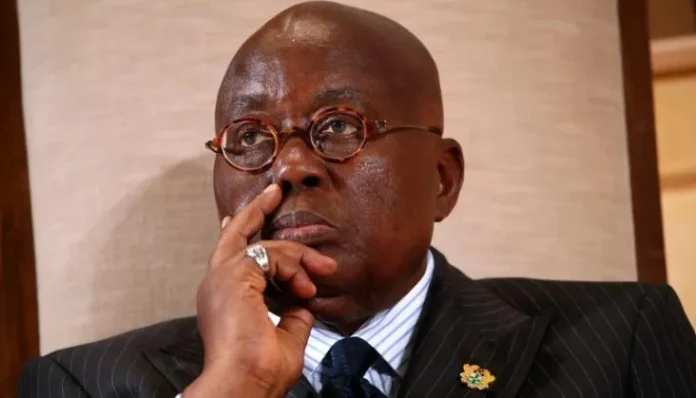Think tank leader Franklin Cudjoe has launched scathing accusations against the former Akufo-Addo administration, alleging widespread mismanagement of nearly $2 billion in Covid-19 relief funds meant to combat the pandemic and its economic fallout.
The founding president of IMANI Centre for Policy and Education, one of Africa’s most influential policy research organizations, didn’t mince words in his recent social media critique. “Nana and his gang received almost $2bn free money to fight off Covid-19 and its impact on our economy,” Cudjoe wrote, claiming the funds were “raided” and distributed primarily among party loyalists.
His allegations come as the World Bank’s 2025 Policy Notes definitively reject the narrative that external shocks caused Ghana’s 2022 economic crisis, stating that global conditions “merely exposed an economy already beset with deep structural vulnerabilities.”
The timing of Cudjoe’s statements appears strategic, coinciding with renewed scrutiny of the previous government’s pandemic response. According to the IMANI chief, a special audit revealed that only 40 percent of Covid-19 funds received proper application toward their intended purposes – a figure that, if accurate, would represent one of the most significant misallocation scandals in Ghana’s recent history.
“We lived it, saw it, complained and Nana Akufo-Addo ignored us,” Cudjoe stated, suggesting that concerns about fund management were raised during the administration but went unaddressed.
The World Bank’s assessment adds weight to criticism of the former government’s economic management. The international financial institution explicitly stated that “the deterioration of global conditions due to the COVID-19 pandemic and the Russian Federation’s invasion of Ukraine was not the cause of the 2022 macroeconomic crisis.”
This rejection of external blame contradicts years of government officials attributing Ghana’s economic difficulties to worldwide disruptions beyond their control. Instead, the Bank’s analysis points to pre-existing structural problems that external events simply revealed rather than created.
Franklin Cudjoe’s track record lends credibility to his current allegations. Throughout 2024, he consistently challenged various aspects of the previous administration’s policies, from calling for the scrapping of Covid-19 levies to questioning economic management strategies.
The Covid-19 fund controversy isn’t isolated. Ghana’s handling of pandemic resources has drawn scrutiny from multiple quarters, with questions about transparency and accountability in fund allocation persisting long after the health emergency subsided.
What makes Cudjoe’s latest intervention particularly significant is its timing. As Ghana works to rebuild economic confidence under new leadership, revelations about potential mismanagement of crisis funds could complicate efforts to restore international donor trust and investor confidence.
The allegations also raise broader questions about oversight mechanisms during emergency periods. When governments receive substantial international assistance for crisis response, the usual checks and balances often face pressure to expedite disbursement – potentially creating opportunities for misallocation.
For ordinary Ghanaians who endured economic hardship during and after the pandemic, these revelations may explain why promised relief didn’t materialize at the grassroots level. If significant portions of emergency funding were indeed diverted, it would represent a betrayal of public trust during a critical period.
The World Bank’s broader assessment suggests these issues weren’t merely administrative failures but symptoms of deeper economic governance problems. Their 2025 Policy Notes paint a picture of an economy where structural weaknesses made crisis inevitable, regardless of external circumstances.
Moving forward, these allegations will likely influence how international partners approach future assistance to Ghana. Donor confidence depends heavily on demonstrated ability to manage emergency funds effectively and transparently.
The controversy also highlights the important role think tanks like IMANI Africa play in holding governments accountable. Cudjoe’s willingness to speak bluntly about alleged mismanagement demonstrates how civil society organizations can provide critical oversight even when formal opposition may be limited.
As Ghana continues its economic recovery journey, understanding what went wrong with Covid-19 fund management becomes crucial for preventing similar issues in future crises. Whether these allegations lead to formal investigations remains to be seen, but they’ve certainly reignited debate about accountability in emergency governance.
Source: newsghana.com.gh











